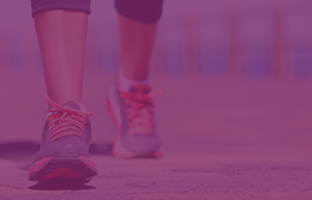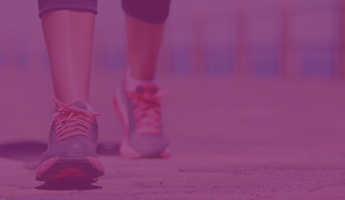Have you ever leaked a little during a good laugh? Noticed your undies are wet after going for a run or jumping with your kids? These are all examples of stress incontinence.
We aren’t talking about mental stress here. The ‘stress’ in stress incontinence is to do with physical stress or pressure placed on the bladder.
Stress incontinence can be embarrassing and often stops women from participating in activities they used to love doing. However, this type of incontinence can in many cases be easily treated with simple, non-invasive strategies such as pelvic floor muscle training
What is Stress Urinary Incontinence?
Stress incontinence is the accidental and involuntary loss of wee during physical exertion. This might be whilst coughing, sneezing, laughing, or exercising. Stress incontinence is the most common type of urinary incontinence, and it is much more common in women. This type of incontinence can occur in young women who have never given birth, after having babies or after menopause.
To better understand stress incontinence, picture a balloon filled with water and turned upside down. The balloon is your bladder, the neck of the balloon your urethra and the water represent urine. The balloon neck prevents some of the water rushing out (just like the tiny muscles in your urethra) and your hand does the rest of the work stopping the flow. Here your hand represents your pelvic floor muscles.
Stress incontinence occurs when the pressure (stress) placed down onto the bladder is greater than the closure pressure at the bottom. So, it is technically a maths equation! When the downward pressure is too high, or the closure pressure too low, you will leak urine.
What are common symptoms of stress incontinence?
The most common symptoms of stress incontinence are leaking urine during an activity. You may leak a small amount or a few drops and not notice it until you check your undies. Or you may leak a large amount of urine, so much so that you need to change your clothes.
Activities women commonly report leaking with are:
- Lifting something heavy, like the shopping bags or a weight at the gym
- Coughing and sneezing
- Giggling or laughing
- Jumping and running
- Dancing
- High intensity exercises (like burpees or skipping) and sports (like soccer, AFL, gymnastics, tennis, volleyball)
What causes stress urinary incontinence?
If you consider the maths equation we described above, you can put causes of stress incontinence into two camps. The “too much pressure down” camp, and the “not enough closure pressure” camp.
Causes of stress incontinence due to “too much pressure down” include:
- Chronic coughing (lung disease, asthma, smoking)
- Obesity (BMI >30)
- Chronic constipation
- Sub optimal movement mechanics during exercise
Causes of stress incontinence due to “not enough closure pressure” include:
- Pregnancy, vaginal childbirth, and breastfeeding
- Menopause
- Ageing
- Conditions that result in poor muscle control or muscle weakness (Multiple Sclerosis, Parkinson’s disease, stroke, traumatic brain injury)
- Catheter use
- Surgery on the pelvic organs (e.g., Hysterectomy)
- Pelvic organ prolapse.
As you can see, there are lots of reasons why you might leak urine. And many of these factors can be occurring simultaneously. Your GP (General Practitioner) is the best person to help rule out medical conditions requiring urgent care (such as a urinary tract infection) and then refer you onto a specialist who can help you work out the root cause of your leaking. This may be a urologist, urogynaecologist, or speciality pelvic floor physiotherapist.
These professionals will take a full history and utilise assessment tools like an internal vaginal exam, bladder diary, or ultrasound to help specify what type of incontinence you have and why.
How can we treat stress incontinence?
You might notice that you’ve stopped jumping on the trampoline all together with your kids or made-up excuses because you don’t want to run with your girlfriends anymore. You aren’t alone, so many women report reducing their activity or completely disengaging with things that used to make them happy due to fear of leaking urine.
We’ve got good news; stress incontinence can actually be managed (in most cases) with some simple lifestyle changes and pelvic floor muscle training. However, treatment doesn’t happen overnight, so the first steps to treating stress incontinence is to manage the leaks appropriately. This allows you to stay active and confident whilst treating the cause. You can find which Poise® pad or liner is best for your type of leaking here
Treating stress incontinence starts with “conservative management”. That is, the stuff before medication or surgery (which is most cases is never required).
Conservative management strategies for stress urinary incontinence treatment include:
Pelvic floor muscle training
(recommend for a minimum of 12 weeks. You can find a 12-week strength training program)
Weight loss (If BMI >30)
Treating chronic constipation
Quit smoking
This content is general and nature and not intended to be a substitute for professional medical advice, diagnosis, or treatment. Always seek advice from a qualified health care professional with any questions regarding your concerns.
FAQs about stress urinary incontinence
What is stress vs urge incontinence?
Both types of incontinence result in the involuntary loss of urine, however they differ in the WHEN and HOW you leak. In stress incontinence, you leak urine during an activity that places downward pressure on the bladder such as coughing or sneezing. You leak because the pressure down is greater than the closure pressure at the exit of the bladder. In urge incontinence, you leak urine because of an involuntary bladder spasm, and this is associated with a strong sense of urgency (i.e., you feel as though you are busting to do a wee and couldn’t defer the urge). It can be due to an overactive bladder or nerve damage. Whilst both conditions involve leaking wee, they have very different causes and require different treatment approaches. You can read more about urge incontinence here
What are pelvic floor exercises for stress incontinence?
Pelvic floor exercises are well-researched in their ability to treat stress incontinence.
Pelvic floor exercises need to be performed for a minimum of 12 weeks and they need to be prescribed and supervised by a physiotherapist in order to get the best results.
These exercises involve voluntarily squeezing the pelvic floor muscles in different positions (like lying, sitting, and standing). The exercises vary in how long you hold the squeeze for and how many repetitions you perform. They should progressively get harder as you progress through 12 weeks. Pelvic floor exercises are performed daily to 3 times a week depending on the program design.
An important pelvic floor exercise that is taught to women as part of a strengthening program is an exercise called “the knack”. This involves pre-emptively squeezing your pelvic floor muscle prior to performing an activity that puts pressure on your bladder (like coughing).
For more information and access to a 12-week strength training program for the pelvic floor head here
Does stress incontinence go away?
Yes. Stress incontinence can be treated. Current research suggests that with simple lifestyle changes and 12 weeks of physio-led pelvic floor muscle training that up to 70-75% of women will be significantly improved or cured. The effectiveness of pelvic floor muscle training will depend strongly on the severity of incontinence, any coexisting pelvic conditions as well as the consistency with which the exercises are performed. Without treatment, stress incontinence is unlikely to go away on its own however some women notice a lot of natural recovery in this symptom in the 12-18 months after having a baby.
Useful resources:
National continence helpline (1800 33 00 66 FREE CALL) – you can speak to a continence nurse for free advice and information.
Continence Foundation of Australia (continence.org.au) – Free information on bladder and bowel conditions in both Women and Men, including information in other languages.
References:
Urinary incontinence and pelvic organ prolapse in women: management NICE guideline [NG123]02 April 2019
Written for Poise by Caitlin Dunsford. Caitlin is a practicing Physiotherapist, with special interest and further training in Women's Health and Continence.







